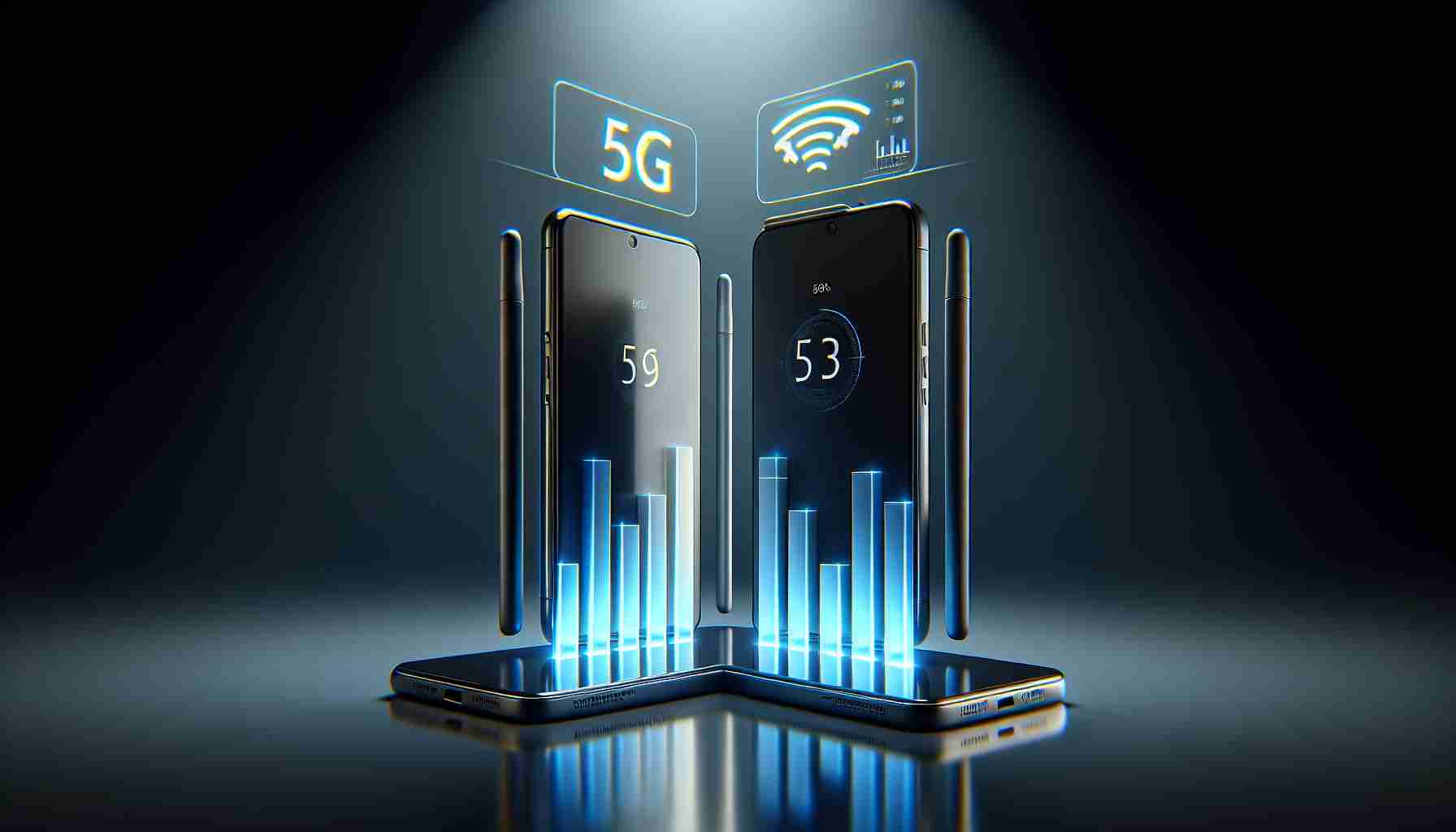Recent findings from the American Customer Satisfaction Index point to an uptick in general satisfaction within the smartphone industry, crediting the advent of 5G technology for this positive shift. Samsung has garnered a slight edge over Apple in terms of customer satisfaction specifically linked to the latest 5G services.
Innovation Fuels Consumer Happiness
The continuous innovation in smartphone technology has not gone unnoticed by consumers. Apple has been a consistent favorite, reflecting this with a solid 82 out of 100 on the satisfaction scale. Samsung, however, has caught up and even surpassed Apple in the 5G arena by notching a score of 83, overshadowing Apple’s 82 in 5G satisfaction.
Traditional Features Retain Their Luster
Despite the rush towards modernization, consumers continue to place high value on traditional phone attributes, with voice call clarity retaining its importance and holding a high satisfaction score of 86. Similarly, the quality of video experiences, website interactions, and the wealth of phone features uphold their relevance with a joint score of 86. Bluetooth capabilities and texting ease also stand firmly in consumer favor, having a notable score of 84.
Complex Dynamics of Technological Progress
As Samsung and Apple lead the charge, their success can be attributed to their pioneering innovations, unwavering quality, and extensive ecosystems. Still, the shift to 5G technology, while imperative for enhanced connectivity, has not been without its roadblocks. Issues such as varying network coverage and the financial implications of accessing 5G-enabled smartphones are influencing factors for all players in the industry.
Factors Affecting the 5G Experience
The 5G transition brings along its share of controversies and obstacles. The limited reach of 5G networks results in inconsistent consumer experiences, while the higher cost of 5G smartphones may deter some potential buyers. Health and environmental regards have also entered the discourse on 5G, with concerns about radiation effects and the sustainable disposal of older devices.
Pros and Cons of Embracing 5G Technology
On the brighter side, 5G promises significantly higher data speeds and reduced latency that facilitate uninterrupted streaming and real-time communication for gaming and immersive technologies. The enhanced network also supports the boom of connected devices in smart cities. Conversely, the financial demands of erecting comprehensive 5G infrastructure, concerns around compatibility for older devices, and the implications for privacy in an increasingly connected world require careful attention.
For those interested in learning more about the progress and impacts of 5G technology, visiting technology and telecommunications research websites like those of Qualcomm and the GSMA can offer valuable insights. In summary, the evolution toward 5G is stimulating satisfaction among smartphone users, but maintaining this momentum will need strategic navigation of complex industry challenges.
Important Questions and Answers:
Q1: What is the significance of Samsung surpassing Apple in 5G customer satisfaction?
A1: Samsung’s edge over Apple in consumer satisfaction indicates a successful effort in not only implementing 5G technology but also ensuring a positive user experience. This could have implications for market competition and future innovation.
Q2: What are some primary challenges associated with the transition to 5G technology?
A2: Primary challenges include ensuring uniform network coverage, managing the higher costs of 5G smartphones, addressing health and environmental concerns, and dealing with the drawbacks of upgrading existing infrastructure.
Q3: Are there health concerns related to 5G technology?
A3: Yes, there are concerns about the potential effects of 5G radiation on health; however, current research by health organizations such as the World Health Organization suggests that exposure to 5G frequencies is within safe limits for the public.
Pros and Cons of 5G Technology:
Advantages:
– Increased data speeds and lower latency improving user experience.
– Enhanced support for the Internet of Things (IoT) and smart city applications.
– Potential for innovations in areas like augmented reality (AR) and virtual reality (VR).
Disadvantages:
– The high cost of 5G infrastructure development and maintenance.
– Compatibility issues with older devices that may not support 5G.
– Privacy concerns due to the increased number of connected devices.
– Environmental concerns related to the disposal of outdated technology.
For those seeking credible information about the rise of 5G technology, you can visit technology research organizations like Qualcomm at Qualcomm and the GSMA at GSMA for in-depth information and resources. These websites provide a wealth of knowledge covering technical details, research, and analysis on the implications and advancements of 5G technologies around the world.
The source of the article is from the blog girabetim.com.br
